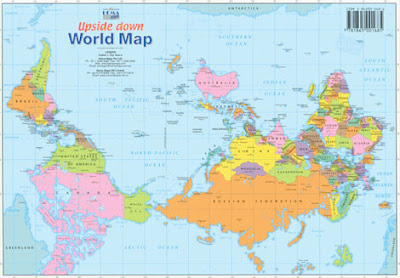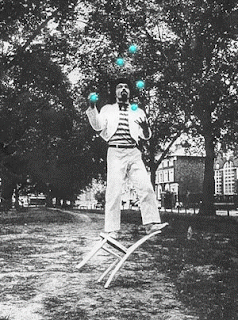Perhaps his texts full of taboo subjects, grotesque and diseased images elicited an ugly association of the word 'virus' which hid the fact that he meant to indicate the method by which language appeared to replicate itself (something like what we now call 'memes').
You can find WSB discussing it in one of his less scary texts - The Job: interviews with William S. Burroughs - in the section called Playback from Eden to Watergate.

"My basic theory is that the written word was actually a virus that made the spoken word possible. The word has not been recognised as a virus because it has achieved a state of symbiosis with the host, though this symbiotic realationship is now breaking down, for reasons I will suggest later."
So anyway, without getting too technical, I flipped open p. 234 of the paperback edition of The First Word, to read:
"Kirby and a number of other researcers find one metaphor especiallly useful for thinking about language: imagine that it is a virus, a nonconscious life-form that evolves independently of the animals infected by it. Just as a standard virus adapts to survival in its physical environment, the language virus adapts to survival in its environment - a complicated landscape that includes the semi-linguistic mind of the infant, the individual mind of the speaking adult, and the collective mind of communicating humans.
According to Terence Deacon, language and its human host are parasitic upon each other. 'Modern humans need the language parasite in order to flourish and reproduce just as much as it needs humans to reproduce.' "
Indeed do artists get there first.
So anyway, Korzysbski had lots to say about 'language hygiene' (or thinking clearly) just as Burroughs adopted the cut-up method to reveal underlying assumptions, prejudices and styles.
Count Alfred Koyrzybski - a marginalized, ignored or forgotten person in the main - offered a set of tools for eliminating sources of error in thinking and speaking, which would have not made him popular with the kind of people who fund research, or politicians and leaders, or advertising execs, or religious types, or... Well, you get the idea. I happen to think he had a point, and quite a few of his tools have become adopted by people without awareness of the source (perhaps).
We use 'air quotes' for dubiously used words; many scientific studies now have started to merge with the use of the hyphen (neuro-linguistic studies, socio-biological) etc, etc. The whole area of study now called NLP (neuro-linguistic programming) - whatever your reaction to those words - remains a study of how words affect us and our belief systems, and how we might need to change the words we use to think about things, to produce real change in the world. And so does the movement called Political Correctness.
Symbolic Species: The Co-Evolution of Language and the Brain Terence Deacon
This review on Language Miniatures had a useful brief summary:
Copyright © 2001 by William Z. Shetter
"But is this perception really all that wide of the mark? Suppose we compare a language with something that really does have animate existence. Let's choose viruses:
- Like a virus, a language is an adaptive entity evolving with respect to its human hosts.
- Modern humans need this language parasite in order to flourish and reproduce.
- Humans ensure that languages, like viruses, are successfully replicated and passed on from host to host.
- The earlier the age at which a language or virus is acquired, the more success it will have (given the simple fact of human mortality) in reproducing from generation to generation. So language infects young children.
- Languages/viruses are highly organized and passed on as a complete, integrated working system, not as a collection of words/genes."
“Silence is only frightening to people who are compulsively verbalizing.” AK
Too many words, too little time. In terms of 'mental hygiene', of course, most forms of meditation seem aimed at quietening the chattering monkey mind - because when that compulsive inner voice stops we might just catch a glimpse of the world...
“Modern man has lost the option of silence. Try halting sub-vocal speech. Try to achieve even ten seconds of inner silence. You will encounter a resisting organism that forces you to talk. That organism is the word. “ WSB






















